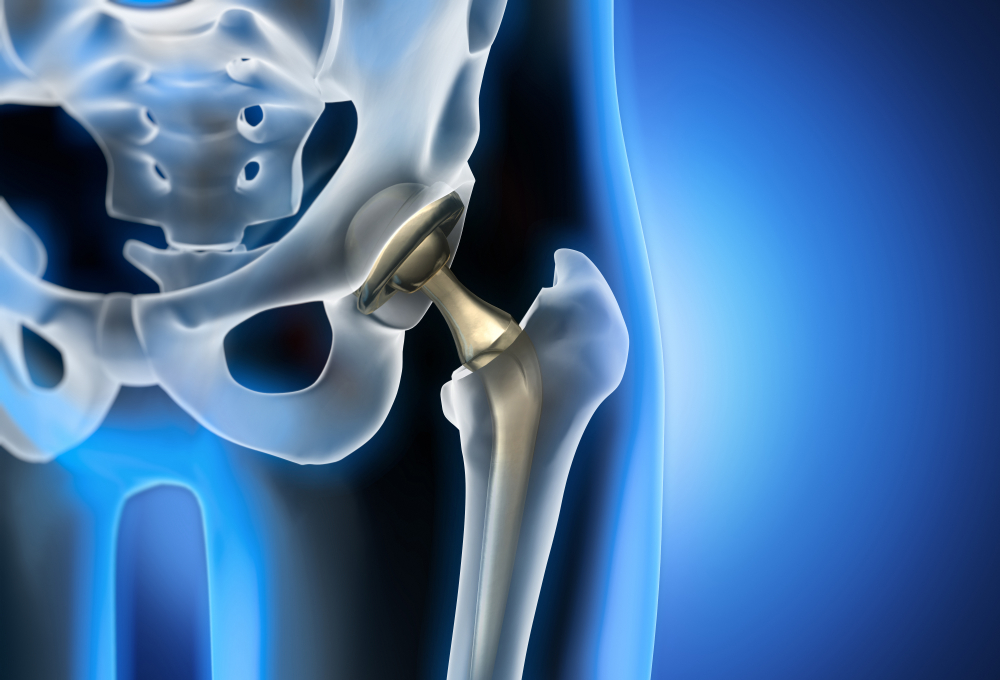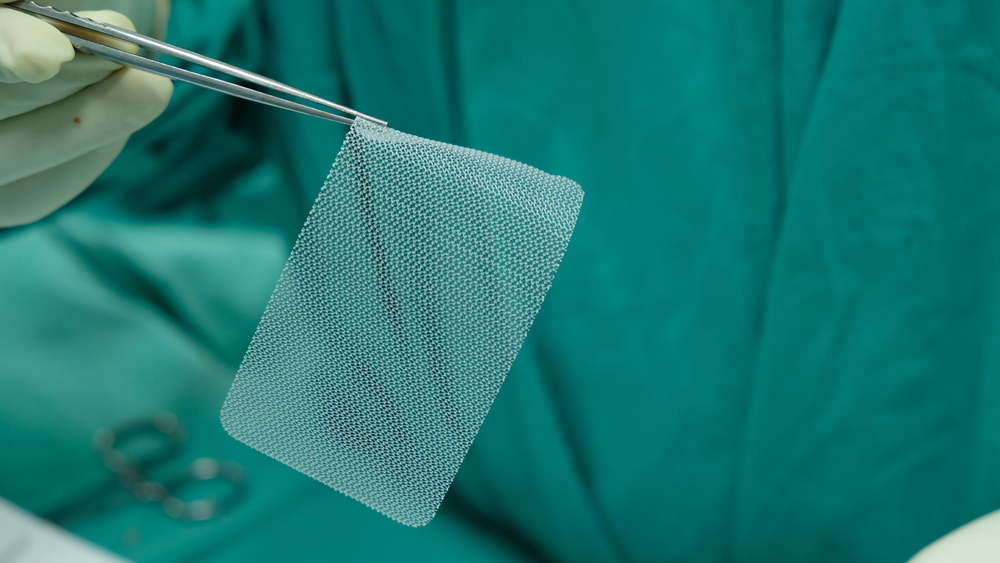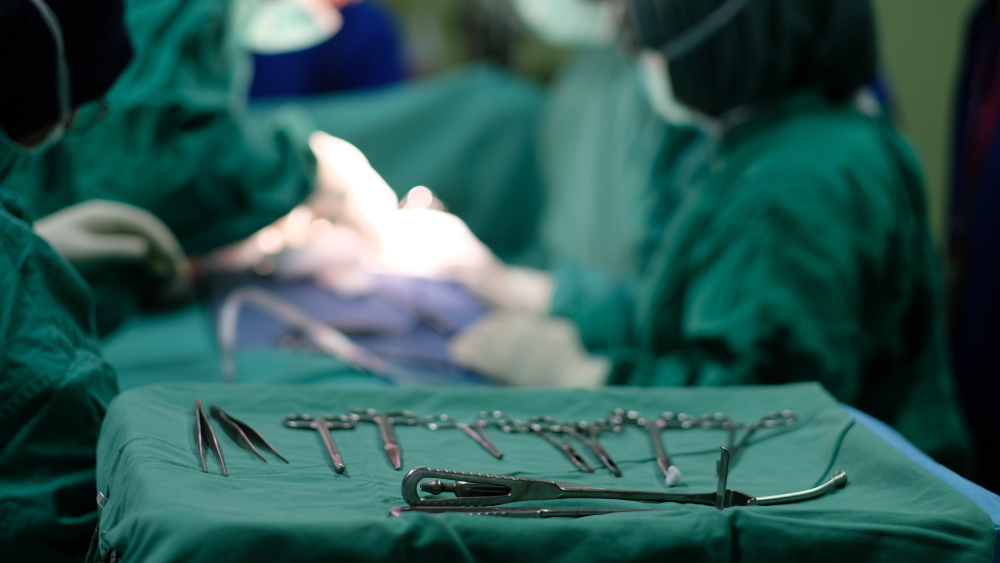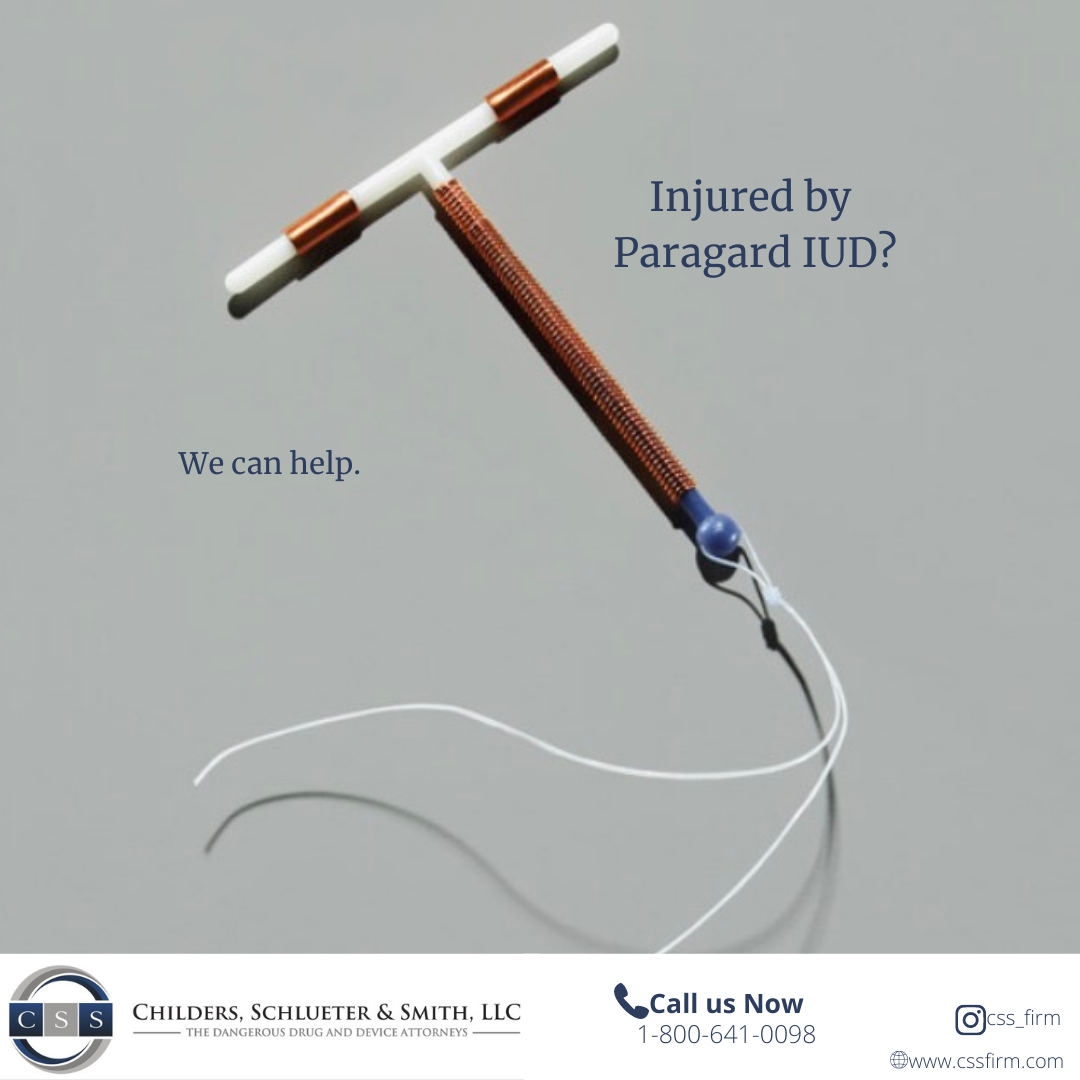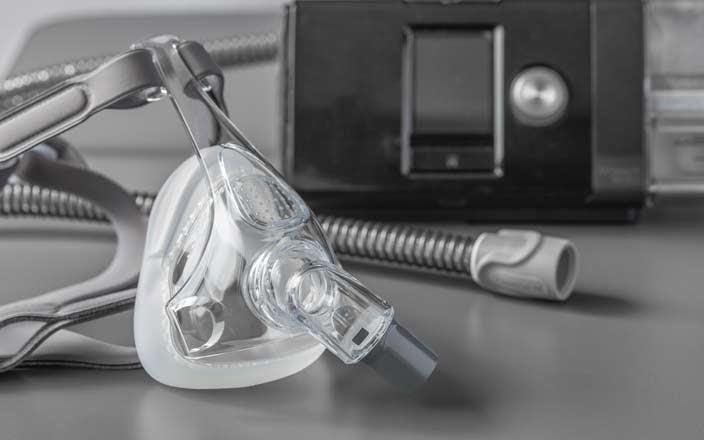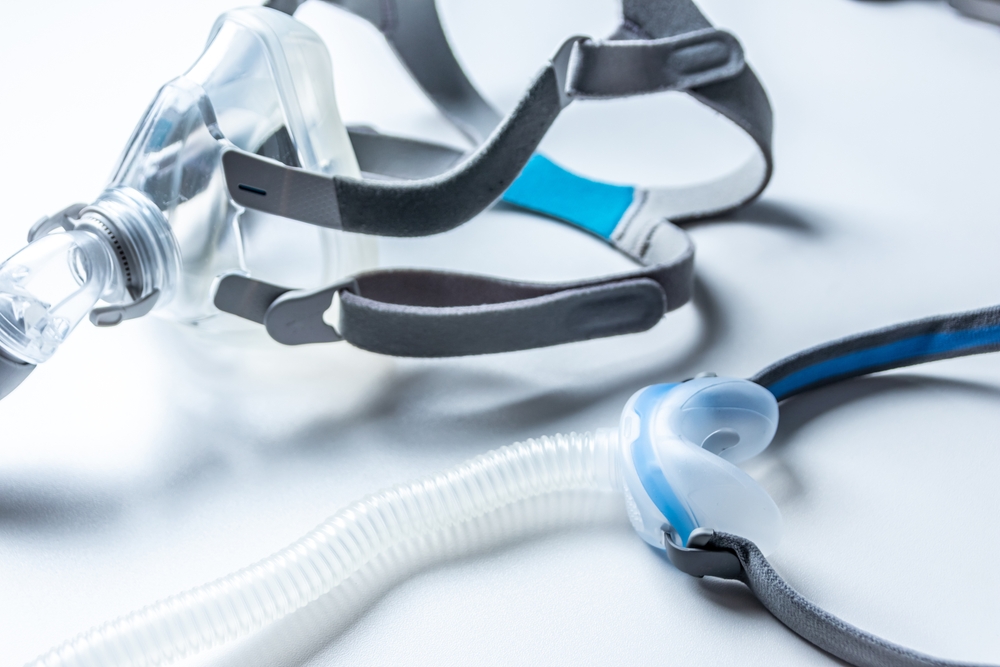About Medical Device Lawsuits
- A failed or faulty medical device can cause serious injuries and complications, including chronic pain, metallosis, cancers, organ damage, osteolysis, decreased mobility, and more.
- A product liability lawsuit may hold manufacturers accountable if there is a defect in the design, manufacture, or marketing of a medical device.
- A defective medical device attorney can help victims recover compensation for a range of damages, such as medical bills, pain and suffering, wrongful death, and lost wages.
Why Hire CSS for a Medical Device Lawsuit
Most of the time, medical devices provide people with immense relief from and effectively treat health conditions, injuries, and illnesses. They can save lives and change them for the better. But a defective medical device can cause more harm than good, putting patients at risk of serious complications and illnesses.
The impact of a failed or faulty medical device is extensive and reaches far beyond the cost of medical bills; you may require time off work to recover or even be unable to return to work because of permanent health issues. A defective medical device can cause significant physical and emotional pain, decrease your quality of life, and make you unable to provide for your family. But there are ways to alleviate the burden and stress of your suffering.
If you’ve been injured, developed an illness, or suffered other harm due to a failed or faulty medical device, we can help. At Childers, Schlueter & Smith, our medical device attorneys will protect your rights and get you justice and compensation for current and future damages and losses.
Our legal team has the experience needed to determine whether there’s a product defect, the type of defect, and who’s liable. We’ll negotiate a fair settlement and take your case to court if needed. We’ve helped victims with failed knee and hip implants, faulty IVC filters, hernia mesh, and other defective medical devices get the compensation they’re entitled to. Contact us today for a free consultation.
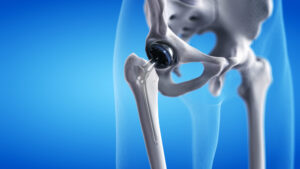
According to the FDA, a medical device is an instrument, apparatus, implement, machine, contrivance, implant, in vitro reagent, or other similar or related article. Individuals with injuries, illnesses, and health conditions trust in the safety of such devices. While there are countless products that provide immense relief and extensive benefits, a defect can do the opposite, and cause devastating, sometimes fatal, health effects. Understanding the types of defects and what needs to be proven in a lawsuit is important.
The three types of failed or faulty medical device lawsuits are:
- Design defect
- Manufacturing defect
- Marketing defect
A flaw or error in the design of a product would be considered a design defect. If any part of a design causes it to fail and you’re harmed or suffer other losses, the manufacturer may be liable. For example, if the design included a material that isn’t strong enough or able to withstand proper use or functioning of the device, there would be a defect with the design.
A manufacturing defect refers to problems during the manufacturing of a product. For example, if a component of a medical device isn’t properly attached when it’s being made, the product could fail and cause the patient harm. The design is correct, but something with the way it was produced or put together caused it to be faulty.
Finally, manufacturers have a duty to properly market products to patients, healthcare professionals, and medical providers. There are a few ways a marketing defect could occur, but some well-known examples include failure to warn of the risks, inadequate instructions for use, and improper labeling.
For a defective medical device lawsuit to be successful, plaintiffs must demonstrate the following:
- A defect exists
- Injuries and losses were suffered
- The defect caused the injury (injuries wouldn’t have occurred if not for the defect)
- It was used as intended
Manufacturers must reasonably foresee how a product could be misused. If they fail to account for this misuse and someone is injured, they may be held liable.
In medical device lawsuits, there are often multiple victims who were harmed by the same product defect, which results in large-scale lawsuits. Sometimes, there are hundreds, thousands, or more plaintiffs, and a class action is formed, or the cases are consolidated into multidistrict litigation (MDL). When this happens, claims may be strengthened thanks to greater resources and evidence sharing.
It’s important to note that medical device lawsuits do more than compensate victims. They lead to new laws and regulations that ultimately protect consumers and hold manufacturers to a higher standard.
Types of Medical Devices Lawsuits
Every day, people rely on medical devices to manage and treat health conditions. But when they fail due to a defect, those who trusted manufacturers to create and sell safe products pay a hefty price. A faulty device can lead to dangerous infections, cause temporary or permanent health issues or disabilities, and require additional treatments or surgeries.
At Childers, Schlueter & Smith, our defective medical device lawyers have helped clients recover the compensation they need and are entitled to after a product caused them harm. The following are examples of the medical device lawsuits we handle.
Faulty Hip Implant Lawsuits
Hip replacement surgery is supposed to provide patients with improved mobility and alleviate pain and stiffness. However, many patients with hip implants manufactured by DePuy, Synovo, Stryker, and Exactech have required painful and costly surgery from faulty devices.
Since 2013, Johnson & Johnson subsidiary DePuy has had to pay billions of dollars in product liability lawsuit settlements and jury verdicts. Plaintiffs suffered numerous health effects from defective DePuy hip implants, including severe inflammation, necrosis (tissue death), metallosis (metal poisoning), organ damage, neurological problems, and cardiovascular issues. The DePuy ASR metal-on-metal hip replacement system put at least 93,000 patients at risk, and thousands of people who received other hip implants made by DePuy filed lawsuits after being harmed by a faulty device.
Stryker is another joint replacement manufacturer that has faced numerous defective product lawsuits. Since 2012, numerous Stryker hip implants and components have been recalled due to reports of failure that caused metallosis, osteolysis (bone dissolution), joint loosening, necrosis, and severe pain and inflammation. The manufacturer has already paid millions in settlements for its LFIT V40 femoral head, Rejuvenate, and ABG II systems, but they’re still facing lawsuits for other hip implants.
At Childers, Schlueter & Smith, our defective hip implant lawyers have helped victims recover compensation for costly revision surgery and rehabilitation, lost wages, pain and suffering, and other damages. Lawsuits have alleged faulty design, manufacturing and packaging defects, as well as failure to warn doctors and patients of the risks.
Note: CSS is no longer accepting new Stryker LFIT V40 Hip Implant Claims. Any information on this page or website is for educational purposes only
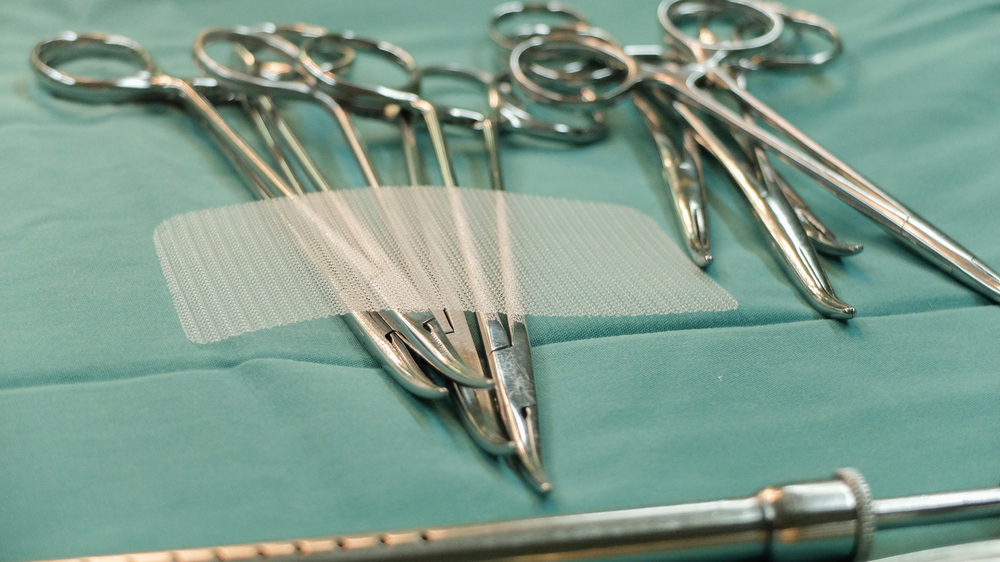
Hernia Mesh Implant Lawsuits
As of May 2024, more than 25,000 defective hernia mesh lawsuits are pending against four major manufacturers. Plaintiffs who have filed hernia mesh product liability lawsuits have suffered serious post-surgical complications, including infections, chronic pain, bowel obstruction, swelling, and recurrent hernias. For some, the mesh detached from the original surgical site, perforating and damaging other organs. These plaintiffs required surgery to replace the mesh and repair these additional injuries.
While there are thousands of hernia mesh implant lawsuits pending, many have reached settlements for undisclosed amounts. However, a handful of verdicts in hernia mesh lawsuits against Bard have ranged from $250,000 to $4.8 million. Bard is facing the majority of cases, with more than 20,000 filed against them. New defective hernia mesh lawsuits are being filed each month, some of which join the ongoing MDL. Manufacturers are expected to pay costly settlements and verdicts as more lawsuits are resolved. If you’ve suffered complications from a failed hernia mesh, contact our team of defective medical device attorneys.
IVC Filter Lawsuits
Individuals at risk of blood clots damaging the heart and/or lungs or blocking arteries may receive an Inferior Vena Cava (IVC) filter to lower the risk of a pulmonary embolism and other complications. However, some patients have had IVC filters that malfunction by detaching or fracturing, causing serious adverse health effects. Because of the risks of device failure, these devices are no longer recommended as permanent solutions. Individuals who have been harmed may be able to seek compensation through a failed IVC filter lawsuit.
Possible injuries and complications from a failed IVC filter include restricted blood flow, punctured organs, stroke, and heart attack. At Childers, Schlueter & Smith, our defective IVC filter attorneys have experience standing up to manufacturers that failed to design a safe product and warn doctors and patients of the risks of serious injuries. We’ve held IVC filter manufacturers accountable for the harm their products cause and recovered fair compensation for several types of damages.
Knee Implant Lawsuits
Knee implants can help people get back to an active lifestyle, enjoy all the benefits of mobility, and eliminate chronic pain and inflammation. But just like hip implants, there are many components and materials used in knee replacement systems that may cause device failure if there’s a product defect.
Knee implant manufacturers must do everything they can to design and create safe products and inform medical providers and patients of the risks, but they don’t always do this. Our medical device attorneys have seen firsthand the serious health effects and injuries that a defective knee implant can have on patients. Complications include osteolysis, severe infections, chronic pain and swelling, difficulty walking, and device fracture or breakage. While they should last 15-20 years, thousands of plaintiffs who have filed defective knee implant lawsuits have had their implants fail just a few years after surgery.
Many knee implant lawsuits we’ve handled involve clients who had to undergo revision surgery. It’s more complicated than the initial surgery, and there are risks of infections, tissue loss, fractures, nerve damage, and deep vein thrombosis. The pain and suffering, lengthy recovery, time off work, and medical costs are extensive, but our defective knee implant lawyers can help ensure victims are properly compensated.
Contact Our Medical Device Attorneys
Medical device lawsuits are complex; they require thorough evidence of injuries, losses, and the defect itself, resources to involve experts and perform a thorough investigation, and experience in product liability law. After all, medical device manufacturers have deep pockets and large legal teams at the ready, and they’ll do whatever they can to pay as little as possible, or not at all.
Many defective medical device lawsuits can be difficult to prove. Far too often, the manufacturer knew there was a problem, but they cared more about their bottom line than the risks to patients. Other times, the manufacturer didn’t know but should have. Regardless of the circumstances, the result of a faulty medical device can be devastating for the victim and their family.
At Childers, Schlueter & Smith, we know the depth to which a failed or faulty product can impact your life, now and in the future. Our defective medical device lawyers will guide you through the legal process, leverage crucial resources, determine the true value of your claim, and explain your legal options. If there’s a class action or MDL, we’ll walk you through the benefits and determine whether you meet the requirements to join. While most cases settle, our attorneys always prepare for trial so we can fight for you in the courtroom if a reasonable offer isn’t made.
Our team’s experience handling medical device lawsuits will ensure you get the compensation you need and deserve. If you’ve been injured or harmed by a failed or faulty device, contact us online or at 1-800-641-0098 for a free consultation.
Frequently Asked Questions
Yes, as long as certain criteria are met. Like any product liability lawsuit, plaintiffs must demonstrate that their device was defective or failed, that it caused the injury, was used as intended, and that they suffered losses. An experienced medical device lawyer can help determine whether you have a case.
Several possible parties may be liable in a failed or defective medical device lawsuit, but the most common defendant is the manufacturers. They’re responsible for ensuring the safety of the design, manufacture, packaging, and marketing of products. Other possible liable parties in this type of product liability case include healthcare professionals, sales representatives, retailers, and medical centers.
In theory, any type of medical device may fail. In recent years, hip and knee implants, CPAP machines, hernia mesh implants, stents, and IVC filters have failed or been defective, leading to large-scale defective product lawsuits.
A design flaw, manufacturing defect, or packaging error or defect can cause patients to suffer injuries and losses that may be recovered through a medical device lawsuit. Failure to warn of the risks or provide adequate instructions for use, both to doctors and patients, or claiming a product does something it doesn’t, are other ways a product liability case may come about.
While you don’t technically need a medical device lawyer to file a defective product claim, you won’t get the best results without the help of an experienced attorney. Understanding the applicable laws, navigating the legal process, including filing paperwork on time, and gathering evidence to strengthen your claim requires specific skills, experience, and resources to receive fair compensation for your injuries. If needed, a defective medical device lawyer will fight for you at trial.
Yes. Your failed or faulty medical device does not need to be recalled by the FDA or manufacturer to qualify for a lawsuit. It can take years for a recall to be made, and depending on the issue, there may never be a recall, but that doesn’t mean you don’t have a valid claim. A medical device lawyer can review your case and explain all your legal options.
A defective medical device can cause minor to serious injuries and health struggles that can have short- and long-term repercussions. A medical device lawsuit or wrongful death claim can recover a range of damages, such as compensation for medical bills, lost wages, pain and suffering, and emotional distress.
Free Case Evaluation
Medical Devices Attorneys
Recent Medical Devices News
The FDA warns that Synovo Total Hip Systems, implanted after 2019, pose risks of failure and injury. Patients experiencing symptoms should consult our CSS lawyers to explore legal options for compensation.
Thousands of hernia mesh products have been recalled, but qualifying for a claim requires proof that a defective hernia mesh implant caused your injury.
Damages from a defective hernia mesh implant vary based on each person’s injuries and circumstances. An experienced dangerous medical device attorney can help identify all the losses you may be entitled to recover.
Women nationwide are filing lawsuits after suffering injuries from Paragard IUD breakage—alleging the manufacturer failed to warn of the device’s dangerous design defects.
A voluntary recall affects over 3.5 million Philips Respironics CPAP, BiPAP, and ventilator devices due to foam degradation risks, potentially endangering sleep apnea patients’ health and safety.
Philips Respironics has recalled certain CPAP, BiPAP, and ventilator devices due to degrading sound foam that may release harmful particles and chemicals, posing serious health risks to users.

